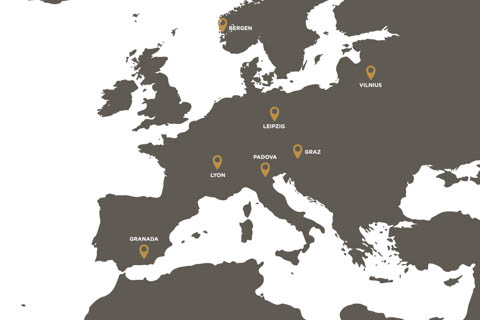English Studies (Media Discourse)
| Faculty Faculty of Philology |
|
|
|
Scope of studies and length 120 ECTS credits, 2 years |
|
|
Qualification awarded
Master in Humanities
|
|
|
Application deadline* 1 May / 1 July |
|
|
Language English |
|
|
Tuition fee per year EU/EFTA students can apply for a state-funded places |
|
|
Start of studies
1 September
|
| City Vilnius |
The English Studies programme provides students with an excellent opportunity to acquire a specialist qualification in English Literature, Cultural Studies and Linguistics with a special track in Media Linguistics. It is a broadly interdisciplinary programme that is concerned with both a theoretical and empirical analysis of the role of English Language, Culture and Literature in the modern society.
The programme consists of three equally balanced blocks of general and subject-specific courses in Linguistics, Literature and Culture. and includes a block of special courses in Media Linguistics that is designed to help students apply the latest theories and methods in this field, as well as to further develop communicative skills in English in various spheres of public communication and to create modern media products.
Why Study at Vilnius University?
|
What comes after?
|
|
When I reflect on my time at Vilnius University, I can confidently say that it has helped me become a better teacher in many ways. Through the linguistics seminars, I was challenged to explore areas I had not considered in detail before, and the literature and culture seminars provided me with new perspectives, enabling me to take a closer and more critical look at literary texts and cultural phenomena. In my role as a teacher, I have been able to revise my teaching practice using these new values and develop a greater sense of confidence. In particular, I have been able to create more critical assessments and formulate new discussion topics for my students, providing them with fresh and interesting ideas to engage with. I believe that these are the ripples of studying at Vilnius University, and I am grateful for the knowledge and skills that I gained during my time there.
|


